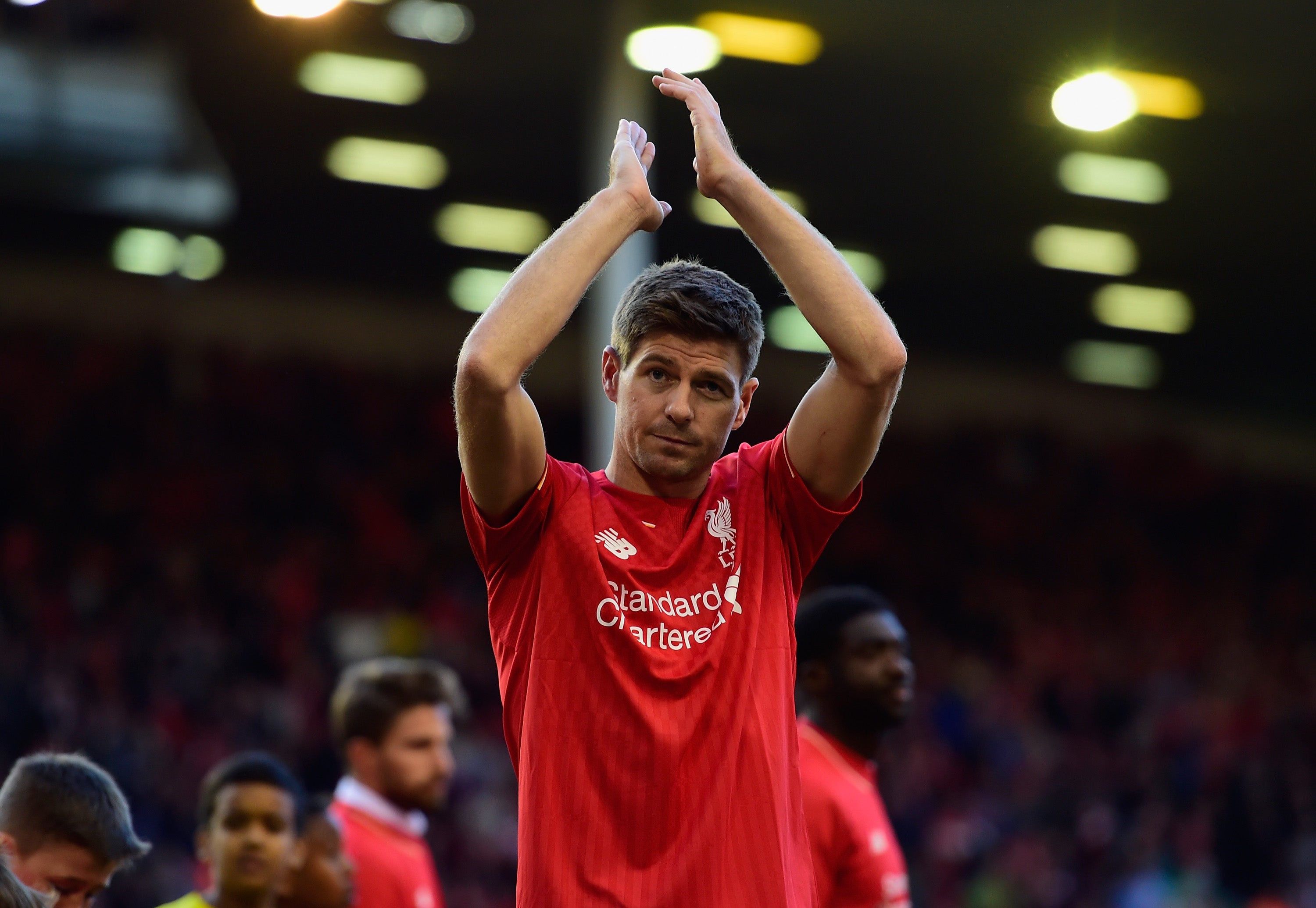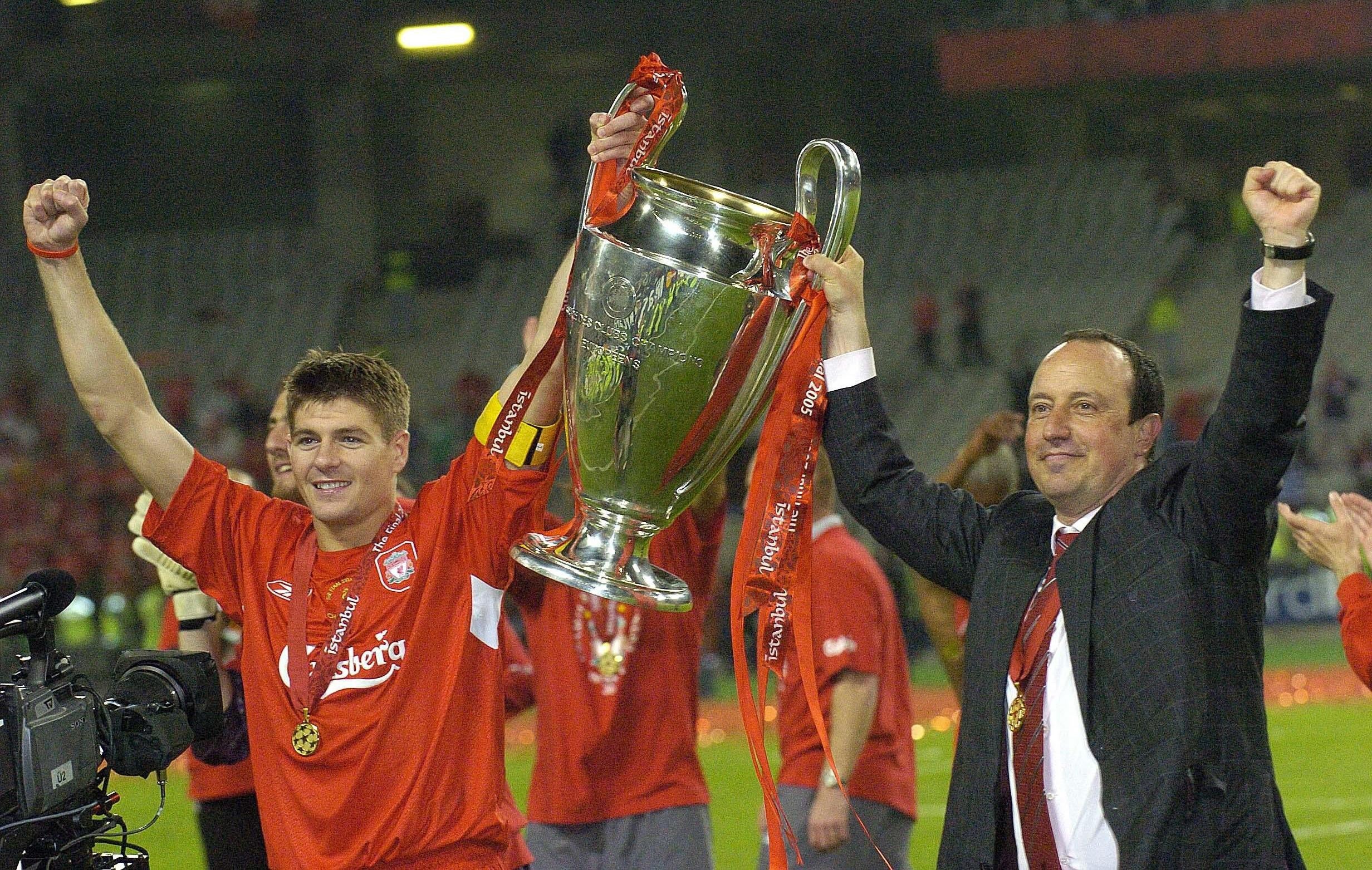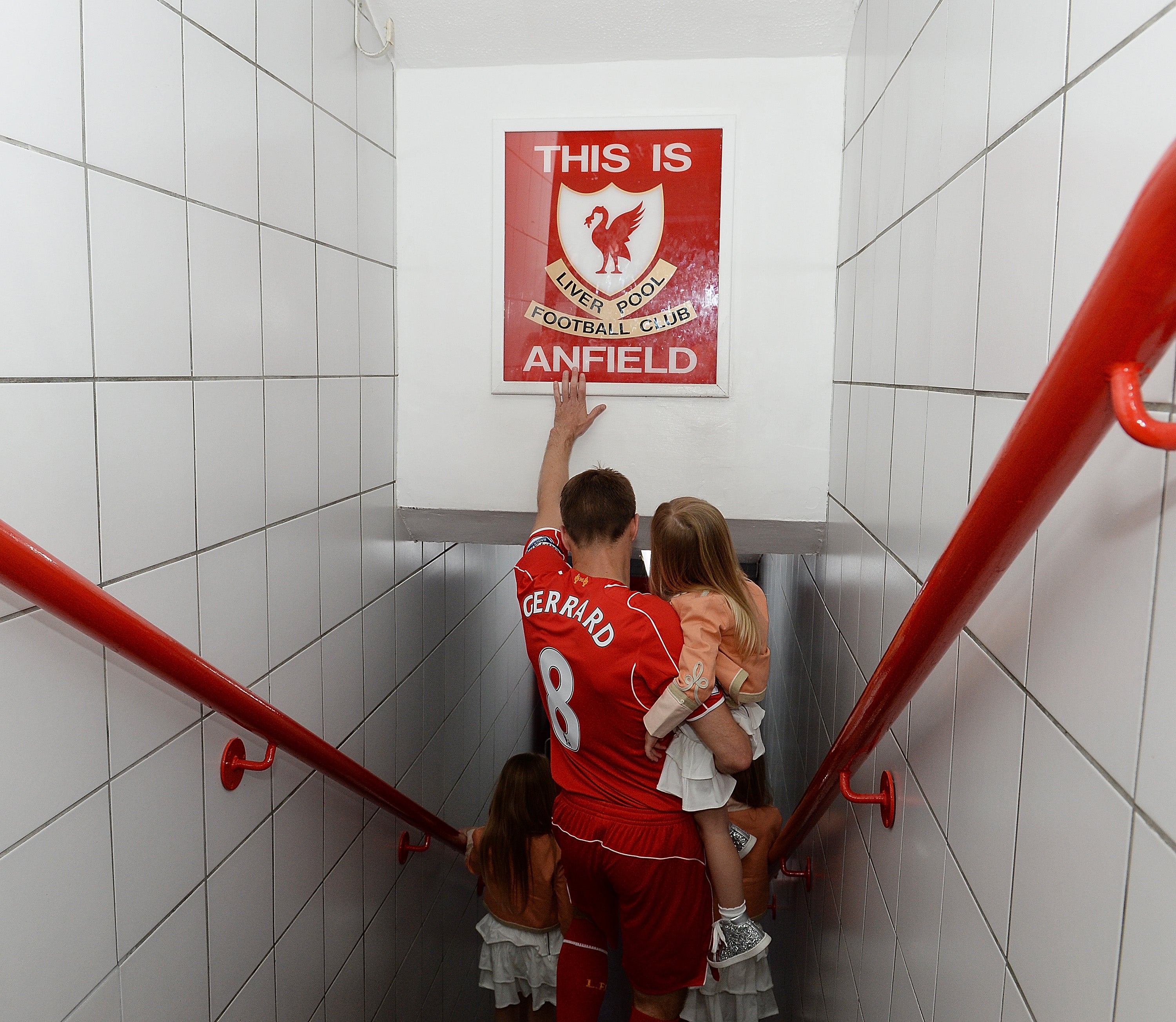Liverpool’s owners never really ‘got’ Steven Gerrard. Now he returns with a different purpose
For the first time, Anfield’s favourite son is back on Merseyside hoping to damage Liverpool and earn three points for a different team

Your support helps us to tell the story
From reproductive rights to climate change to Big Tech, The Independent is on the ground when the story is developing. Whether it's investigating the financials of Elon Musk's pro-Trump PAC or producing our latest documentary, 'The A Word', which shines a light on the American women fighting for reproductive rights, we know how important it is to parse out the facts from the messaging.
At such a critical moment in US history, we need reporters on the ground. Your donation allows us to keep sending journalists to speak to both sides of the story.
The Independent is trusted by Americans across the entire political spectrum. And unlike many other quality news outlets, we choose not to lock Americans out of our reporting and analysis with paywalls. We believe quality journalism should be available to everyone, paid for by those who can afford it.
Your support makes all the difference.Steven Gerrard is guaranteed a rapturous reception from the Kop when he brings his Aston Villa side to Anfield on Saturday. The 41-year-old will forever be a Liverpool hero, no matter where he manages.
Gerrard is one of the towering figures in the club’s history. The sentimental narrative demands that his journey in management that started off at Rangers and is continuing at Villa ends with a glorious return to Merseyside. After all, Jurgen Klopp is planning a year off when his contract expires in two and a half years’ time. At this stage that is a pipe dream. It would take a remarkable performance at the Midlands club for Gerrard to impress Fenway Sports Group (FSG) before the German departs.
The American owners never quite “got” the Gerrard phenomenon. They arrived in 2010 when the midfielder had passed his breathtaking best. He was still one of the finest players in the Premier League but he was also caught up in the toxic internal politics that defined the tail end of the Gillett and Hicks era. FSG’s main obsession during their first half-decade at the club was how they could fill the void Gerrard would leave. They were looking for a ready-made replacement and did not initially understand that he was beyond compare.
How badly did they get it wrong? By the time Brendan Rodgers arrived at Anfield, FSG were categorising Gerrard with Stewart Downing, accusing both of playing “English football” that “looked absolutely terrible.” Rodgers had one eye on a post-Gerrard side when he played the ageing icon in a deep midfield role. The Northern Irishman did not anticipate that the experiment would be a success. It was, and that was more a tribute to Gerrard’s ability rather than Rodgers’s tactical acumen.
When the man from Huyton left for the Los Angeles Galaxy six years ago there was a strong feeling that he was manoeuvred through the exit door. When he came back and coached at the academy it was fairly obvious that his career progression lay elsewhere.
Few people around Anfield saw Gerrard as a natural manager. When he was a teenager and asked to give a self-assessment by his coaches, he noted a tendency to “worry about certain things”. A phrase that keeps cropping up from people who have worked closely with him is “he feels the weight of the world on his shoulders”. That is not a good attribute for managers. So far, though, the former England skipper has confounded the doubters – one of whom was Fabio Capello, who questioned whether Gerrard was assertive enough to wear the national team’s armband.
As a player Gerrard inspired with his deeds more than his words. Jamie Carragher was a more natural, vocal leader. There were times when Gerrard appeared very insular and sometimes self-centred. In the early 2000s a section of the crowd were not enamoured of the youthful midfielder, labelling him “Stevie Me”. The antipathy was forgotten in the second half of the decade but only after he was twice close to moving to Chelsea.
The signature game of his career was the comeback from three goals down to AC Milan at half time to draw 3-3 in the 2005 Champions League final and win after penalties on a mindblowing evening at the Ataturk Stadium. Six weeks later he handed in a transfer request and seemed set for Stamford Bridge. Just before the point of no return, Gerrard found he could not leave Anfield and suffered an emotional response akin to a minor breakdown.

More than the wild night in Istanbul, this was his defining moment. He should have left Liverpool. The grass was greener. Chelsea would have paid him significantly more money and delivered him more medals. Much nonsense has been spoken about the circumstances around the decision, including surreal suggestions that Gerrard was threatened by criminal elements, but all the pressure was internal. When the moment came, he did not want to break the umbilical cord that entwined family, club and city.
He was unable to win the title with Liverpool and his 2014 slip against – ironically – Chelsea was the turning point in the Premier League race. Yet for all the songs mocking that moment, the blame for the team’s unbalanced shape is down to Rodgers. Midfielders are entitled to stumble in the part of the pitch where Gerrard lost his footing; they are also entitled to expect centre-backs to be behind them ready to stop the resulting danger.
The love for Gerrard around Anfield is sincere. His difficult times are now largely airbrushed out of history but his peaks outweighed the lows. His indelible mark of greatness is imprinted on the club.

Now, for the first time, he is back on Merseyside with different intentions. He wants to damage Liverpool and take the points for his team. He will not make the same mistake as Gerard Houllier, his former boss and a predecessor as Villa manager. The Frenchman let his emotional connections distract him and touched the “This Is Anfield” sign before a Villa defeat 11 years ago. “If I have got to lose 3-0, I would prefer it to be to them as I like Liverpool,” Houllier said after the game, a comment that alienated many on the Holte End.
There will be no nostalgia for Gerrard. He has more than paid his dues to the Kop. He is ambitious but no longer needs to carry his city’s weight of expectation. That release gives him a freedom that he never had during his playing career. It is very unlikely that he is on a path to manage Liverpool but the improbable cannot be dismissed when it involves a man who has made the impossible happen.
Join our commenting forum
Join thought-provoking conversations, follow other Independent readers and see their replies
Comments